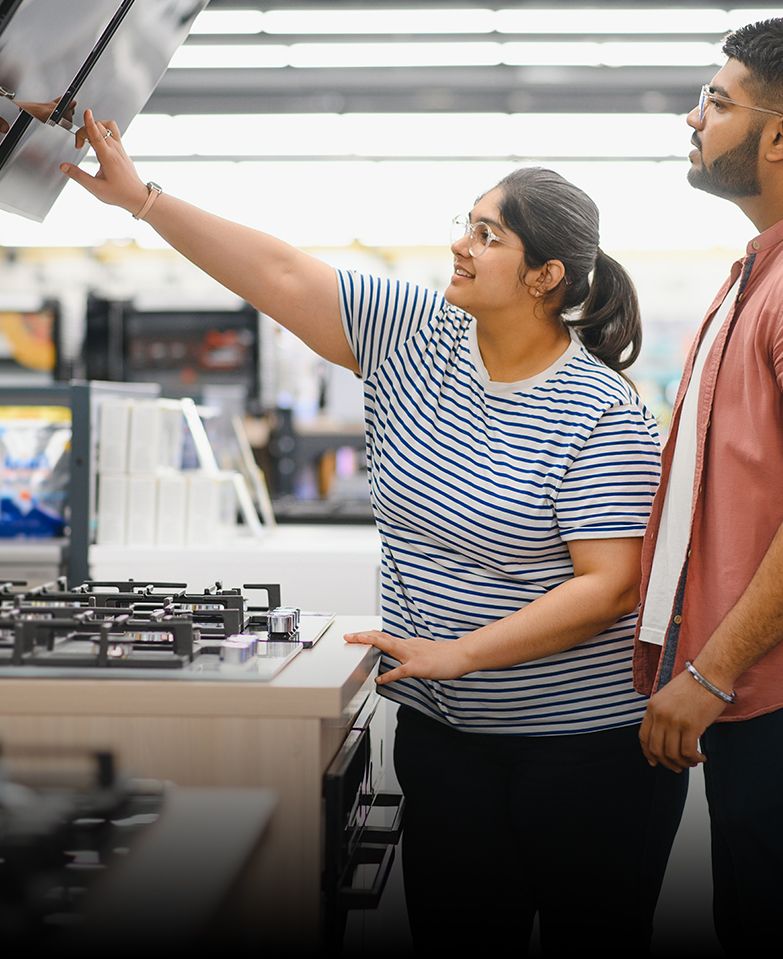
How to Stay Debt-Free in Your 20s: Lessons to Learn
You’re in your 20s and life’s just getting started. There’s so much to do — new gadgets to buy, trips to plan and nights out with friends. With offers like “pay later” or easy EMIs, it’s tempting to swipe now and think about it later. It feels simple at first, but before you know it, those small payments start piling up.
Staying on top of it all isn’t always easy, but it doesn’t have to be so tricky either. There are a few smart moves that can help you stay in control of your money without giving up on the things you love. Here’s how you can do just that.
Have control over credit card expenses
Credit cards make spending feel so easy. Swipe now, worry later — but that “later” can quickly turn into a pile of bills. It’s important to only use your credit card for things you can pay off in full at the end of the month. Paying only the minimum might seem convenient, but it mostly covers interest, not the amount you actually owe.
If you keep doing this, you’ll be stuck paying way more than you borrowed. To stay in control, track your card expenses regularly. Set a spending limit for yourself. If possible, use a card that gives you cashback or rewards so you’re at least getting some value back. It’s also smart to avoid having too many credit cards at once — more cards mean more chances to overspend and more bills to manage.
Increase your cash flow
Cash flow means how much money you have left after paying all your expenses. The more cash you have left, the better your financial position. If you feel like you’re always running out of money, it’s time to either increase your income or reduce your expenses. Increasing your income could mean finding a side hustle, doing freelance gigs or even asking for a raise at your current job.
Reducing expenses doesn’t mean giving up everything you love. It’s about cutting down on the unnecessary stuff, like subscription services you barely use or cutting back on frequent takeout orders. The goal is to have more money coming in than going out so you can save, invest or pay off debts.
Budgeting is vital
Budgeting sounds boring, but it’s one of the simplest ways to stay on top of your money. Without a budget, it’s easy to spend more than you earn and wonder where your money went. Budgeting helps you see exactly how much you’re spending on things like rent, food and entertainment.
A popular way to do this is the 50/30/20 rule — 50% for needs (like rent), 30% for wants (like shopping) and 20% for savings or paying off debt. It’s not about being strict, it’s about being smart. You can even use budgeting apps to make it easier to track expenses. Over time, you’ll notice where your money is leaking and once you fix it, you’ll have more money for things that really matter.
Prepare as per life stages
What you need financially at 21 isn’t the same as what you’ll need at 29. Life changes and your money habits should change too. In your early 20s, you might be focused on paying off student loans or building savings. By your mid-20s, you may have bigger goals like buying a car or planning for marriage. Later in your 20s, you might think about getting a house or supporting a family.
Each stage has different money needs, so it’s smart to plan ahead. This doesn’t mean you need to have it all figured out, but it helps to be aware. Start by setting small goals for each stage, like building an emergency fund in your early 20s and focusing on investments in your later 20s. If you plan for each stage, you’ll be better prepared for life’s big changes.
Building an emergency fund
An emergency fund is like a money safety net. It’s there for life’s “what if” moments — like when your phone breaks, your car needs repairs or you suddenly lose your job. Instead of panicking or taking a loan, you can use this fund. Ideally, your emergency fund should cover 3 to 6 months of your living expenses.
But don’t stress if that sounds too big. Start small. Even saving ₹500 or ₹1000 a month will add up. To make it easier, set up automatic transfers to a separate savings account so you don’t have to think about it. The key is to keep this fund separate and not touch it for regular expenses. If you stay consistent, you’ll have a good cushion in no time.
Getting off debt is possible
Debt can feel like a heavy weight on your shoulders, but it doesn’t have to stay that way. No matter how much you owe, you can pay it off with the right approach. Start by listing all your debts — like credit cards, personal loans or any money you owe to friends or family. Note down how much you owe, the interest rate and the minimum payments for each. Then, decide how you’ll pay it off.
One option is to pay off the smallest debt first (this is called the snowball method) because it gives you a quick win and boosts your confidence. Another option is to tackle the debt with the highest interest rate first (this is the avalanche method) because it saves you more money in the long run. Whichever method you choose, the key is to stay consistent. Avoid taking on new debt while you’re paying off the old one. It’s not easy, but every small step gets you closer to being debt-free.
Endnote
Your 20s are all about figuring things out — your career, your goals and yes, your money too. It’s easy to get caught up in spending, but a little control now can save you from big money problems later. Simple habits like tracking your spending, sticking to a budget and saving for emergencies can make a huge difference. It’s not about being perfect with money, it’s about being smart with it.
A Kotak811 can help you do just that. It’s easy to open and lets you track your money right from an app. Money habits you build today can make life so much easier tomorrow. So, take it one step at a time — you’ve got this!
Popular Searches on Kotak811
Open Zero Balance Account | Super Savings Account | Super Savings Account Fees And Charges | Lifetime Free Credit Card | Apply for PVR INOX Debit Card | Apply for Image Debit Card | ActivMoney Savings Account | Apply for Online Savings Account | Savings Account Fees and Charges | Apply for Current Account Online | Check Your CIBIL Score | Activate Dormant Account Online | Open Instant Digital Savings Account | Apply for Instant Personal Loan Online | Complete Guide on Fixed Deposit (FD) | Visa Debit Card | Kotak 811 Mobile Banking App | Best Savings Account | Personal Loan for Education | Personal Loan For Marriage | Personal Loan For Medical Emergency | Personal Loan For Travel | Unsecured Personal Loans | Complete Guide on Fixed Deposit (FD) | Unfreeze Bank Account Online
This Article is for information purposes only. The views expressed in this Article do not necessarily constitute the views of Kotak Mahindra Bank Ltd. (“Bank”) or its employees. Bank makes no warranty of any kind with respect to the completeness or accuracy of the material and articles contained in this Newsletter. The information contained in this Article is sourced from empanelled external experts for the benefit of the customers and it does not constitute legal advice from Kotak. Kotak, its directors, employees, and contributors shall not be responsible or liable for any damage or loss resulting from or arising due to reliance on or use of any information contained herein.
Share



